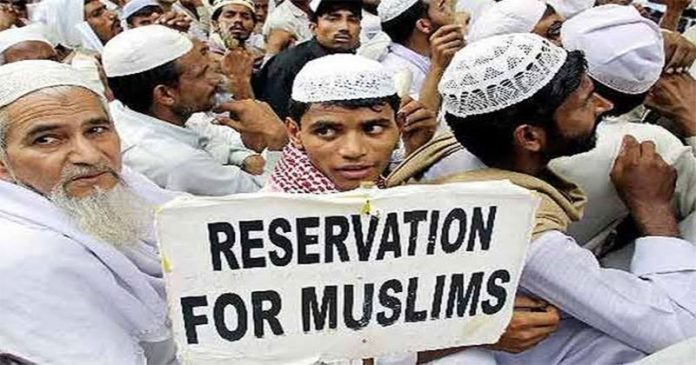– Syed Tahsin Ahmed, Retired KAS Officer & Ex-Secretary, Karnataka State Minorities Commission
Bengaluru: A new study, Rethinking Affirmative Action for Muslims in Contemporary India, authored by Hilal Ahmed, Mohd. Sanjeer Alam, and Nazima Parveen, and published by the Centre for Development Policy and Practice (CDPP) in 2025, has reignited discussions on the need for a secular approach to Muslim reservations in India. The report argues that instead of demanding a separate Muslim quota, emphasis should be placed on the universal applicability of welfare schemes to ensure effective and impartial affirmative action policies.
The Quota Policy
The report extensively discusses affirmative action, particularly the reservation of seats in educational institutions and public employment for disadvantaged groups. Presently, Scheduled Castes (SCs), Scheduled Tribes (STs), and Other Backward Classes (OBCs) benefit from reservations. While certain Muslim sub-groups are categorized as OBCs, this classification varies across states.
The authors highlight the post-Sachar Committee (2006) efforts to introduce a Muslim quota, but the categorization of Muslims within existing social groups remains contentious. Historically, commissions, including the Mandal Commission, have refrained from treating Muslims as a monolithic entity eligible for blanket reservation benefits.
Outdated Categorization and Caste Hierarchies
The study criticizes the government’s continued use of outdated classifications, dividing Muslims into three categories:
Ashrafs: Muslims of foreign descent and converts from upper-caste Hindus, including Syeds, Shaikhs, Pathans, and Moghuls, who are denied reservation benefits.
Ajlafs: Engaged in skilled but clean occupations like carpentry, tailoring, and dairy farming, some of whom qualify for OBC status.
Arzals: Engaged in menial and unclean professions such as scavenging, barbering, and laundry work, who also qualify for OBC benefits.
The report underscores the flaw in this classification, pointing out that economic deprivation exists even among Ashrafs, who are often assumed to be well-off. The study, however, does not delve deeply into the complexities of these intra-community disparities.
The Case for a More Inclusive OBC List
Islam theoretically rejects caste and class hierarchies, but the study acknowledges their existence in practice. The authors argue that reservations should be based on social and economic stratification rather than rigid caste-based divisions.
To address this, the study suggests expanding the OBC category to include more Muslim sub-groups such as Mouzzans, Imams, Mosque Khadims, puncture-wallahs, construction workers, tailors, mechanics, drivers, and street vendors. The report also notes that Muslim OBCs are at a greater disadvantage than their Hindu counterparts due to systemic exclusions and competitive disparities.
A proposed solution is the introduction of a sub-quota or a distinct category for Muslim OBCs, a move that the study asserts has judicial precedence and could withstand legal scrutiny.
Pasmanda Muslim Demands and Alternative Affirmative Action
The study highlights the demands of the Pasmanda Muslim movement, particularly the All-India Pasmanda Muslim Mahaz (AIPMH), which advocates for three key reforms:
1. Reclassification of OBCs: Dividing OBCs into ‘backward’ and ‘most backward’ categories using a secular and objective criterion. Pasmanda Muslims would naturally fall under the most backward category due to their relative deprivation.
2. Secularization of Scheduled Caste Status: Extending SC reservations to Dalit Muslims and Dalit Christians, a move that could redefine socio-religious identities and has sparked debate within the Muslim community.
3. Affirmative Action in the Private Sector: Given the declining number of government jobs, the study emphasizes the necessity of private-sector reservations to ensure comprehensive economic upliftment.
The authors reiterate the AIPMH’s opposition to a religion-based quota for Muslims, aligning with their broader call for an objective and non-discriminatory approach to affirmative action.
Challenges and the Path Ahead
While the report provides a structured argument for rethinking affirmative action for Muslims, its recommendations face significant political and ideological hurdles. The term ‘secular’ itself remains contentious in contemporary policy debates. The effectiveness of these proposals will ultimately depend on their acceptance by policymakers and their implementation at the grassroots level.




